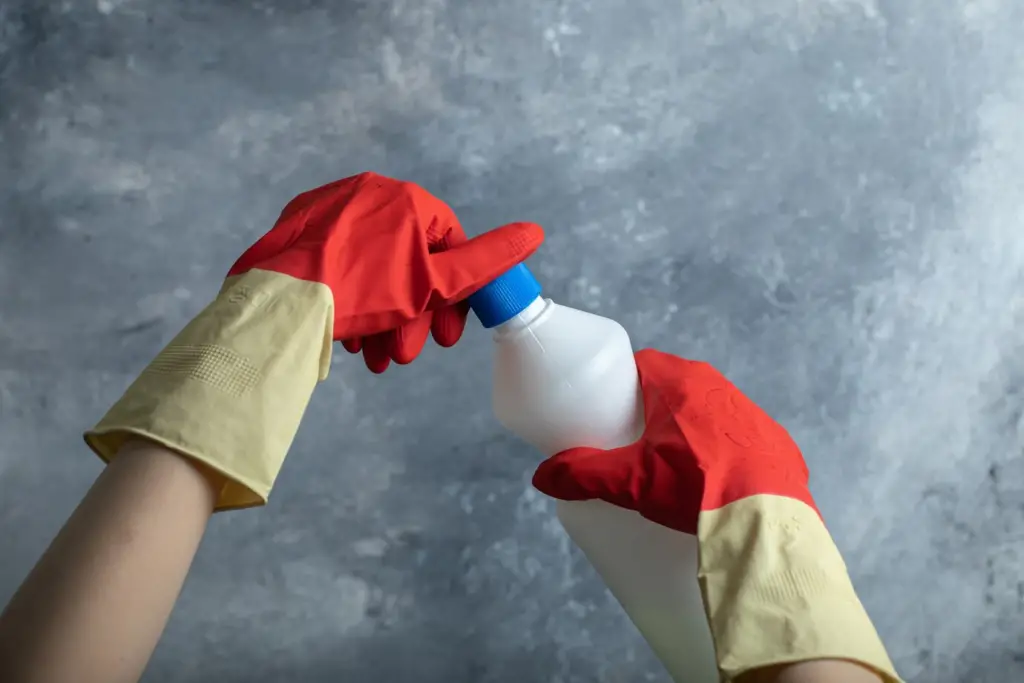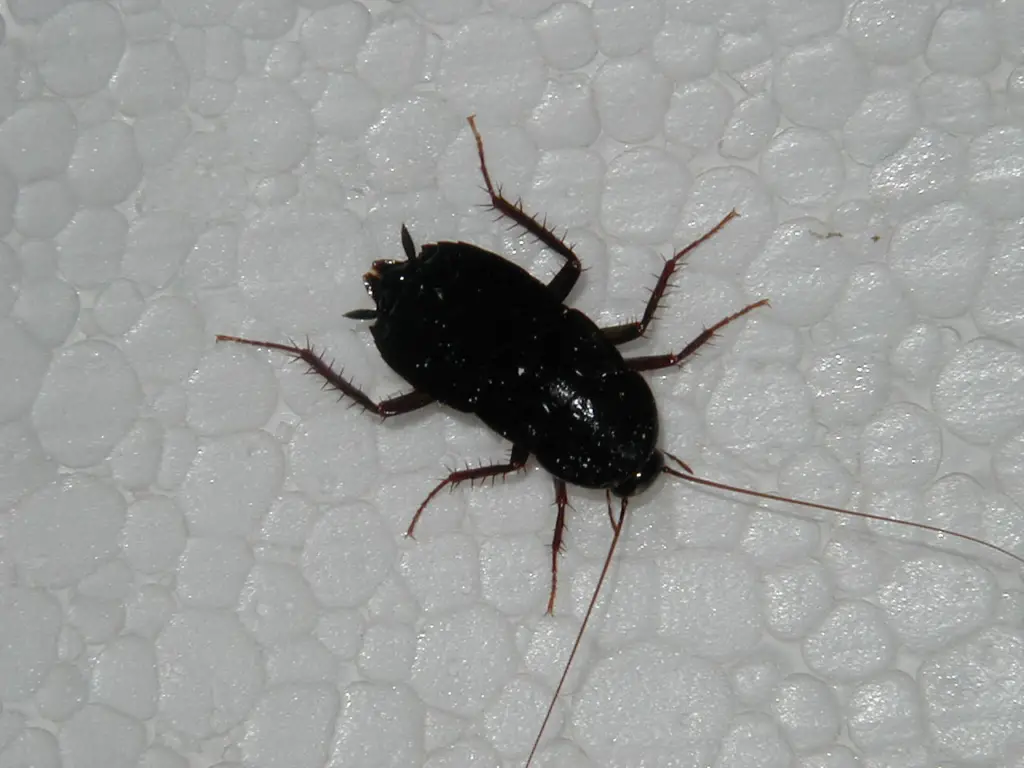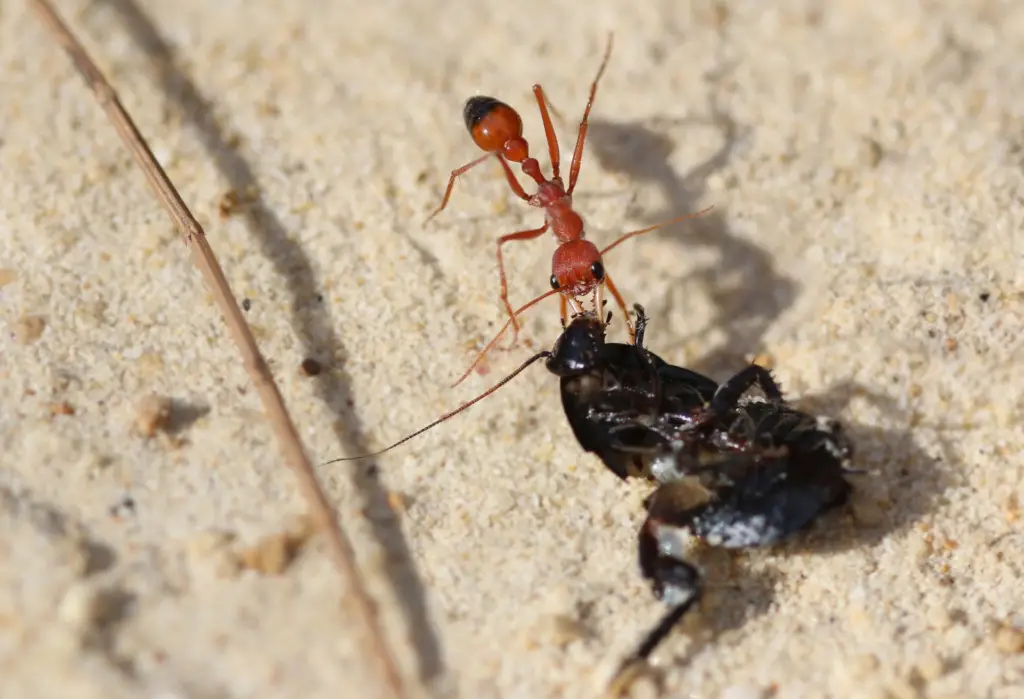Pest Lockdown
Does Bleach Kill Cockroaches? A Comprehensive Guide

Cockroaches are among the most resilient and unwelcome pests in households worldwide. Known for their ability to thrive in various environments, they pose significant challenges for homeowners trying to maintain a clean and healthy living space. One common question that arises in the battle against these persistent insects is: Does bleach kill cockroaches?
This comprehensive guide aims to address this question in detail, exploring the effectiveness of bleach as a cockroach deterrent, the science behind its use, and alternative methods for cockroach control.
Understanding Cockroach Biology and Behavior
Cockroach Anatomy and Lifespan
Cockroaches belong to the order Blattodea and have a simple yet effective anatomy that allows them to survive in harsh conditions. They have a hard exoskeleton, which provides protection and retains moisture, and their flat bodies enable them to hide in narrow crevices. Cockroaches undergo three life stages: egg, nymph, and adult. The duration of their life cycle varies depending on the species and environmental conditions, but some species can live up to a year or more.
Habits and Habitats
Cockroaches are nocturnal creatures, preferring to stay hidden during the day and becoming active at night in search of food and water. They are omnivorous scavengers, feeding on a wide range of organic materials, including crumbs, grease, and even decaying matter. Common hiding spots for cockroaches include kitchens, bathrooms, basements, and other areas with access to food and moisture, two of the main cockroach attractants.
Health Risks Associated with Cockroaches
Cockroaches are not just a nuisance; they pose significant health risks. They can contaminate food and surfaces with bacteria, leading to foodborne illnesses. Their droppings, saliva, and shed skins can also trigger allergies and asthma, particularly in children and sensitive individuals. Understanding these risks underscores the importance of effective cockroach control.

The Role of Bleach in Cockroach and Pest Control
What is Bleach?
Bleach is a chemical compound commonly used as a disinfectant and whitening agent. It is available in various forms, with sodium hypochlorite (NaOCl) being the most widely used type in household bleach. Bleach is effective at killing bacteria, viruses, and fungi, making it a popular choice for cleaning and sanitizing surfaces.
Mechanism of Action
Bleach works by releasing chlorine, which reacts with proteins, enzymes, and cell membranes of microorganisms, leading to their destruction. The high pH level of bleach also contributes to its effectiveness by denaturing proteins and disrupting cellular processes.
Types of Bleach
There are different types of bleach available for household use, including:
- Chlorine Bleach: The most common type, effective for disinfection and whitening.
- Oxygen Bleach: Contains hydrogen peroxide, safer for colored fabrics and less harsh than chlorine bleach.
- Non-Chlorine Bleach: Typically used for laundry, less effective as a disinfectant.

Does Bleach Kill Cockroaches?
Direct Application
When it comes to killing cockroaches, bleach can be effective if it is applied directly to the insects. The strong chemical properties of bleach can penetrate the cockroach’s exoskeleton, leading to suffocation and eventual death. However, direct application can be challenging, as cockroaches are fast and adept at hiding.
Bleach as a Deterrent
While bleach can kill cockroaches on contact, its use as a deterrent is less straightforward. The strong odor of bleach may repel cockroaches temporarily, discouraging them from entering treated areas. However, this effect is not long-lasting, and cockroaches may return once the odor dissipates.
Limitations of Bleach
Despite its potential to kill cockroaches, bleach has several limitations as a pest control method:
- Inaccessibility: Cockroaches often hide in places that are difficult to reach with bleach, such as deep crevices, behind appliances, and inside walls.
- Short-Term Solution: Bleach does not provide a long-term solution to cockroach infestations. While it may kill some insects on contact, it does not address the root of the problem, such as eliminating nests or preventing reproduction.
- Safety Concerns: Bleach is a corrosive chemical that can pose health risks if not used properly. It can cause skin and eye irritation, respiratory issues, and damage to surfaces if misapplied.
Practical Usage Tips
For those who still wish to use bleach in their pest control efforts, here are some practical tips:
- Dilution: Use a diluted solution of bleach (1 part bleach to 10 parts water) to reduce the risk of damage to surfaces and health hazards.
- Targeted Application: Apply bleach in areas where cockroaches are frequently seen, such as under sinks, around drains, and near garbage disposals.
- Ventilation: Ensure good ventilation when using bleach to minimize inhalation of fumes.
- Protective Gear: Wear gloves and eye protection to avoid direct contact with bleach.
Alternative Cockroach Control Methods
Integrated Pest Management (IPM)
Integrated Pest Management (IPM) is a comprehensive approach to pest control that combines multiple strategies to achieve long-term results. IPM focuses on prevention, monitoring, and control, using a combination of chemical and non-chemical methods.
Prevention
- Sanitation: Keeping your home clean and free of food debris is crucial in preventing cockroach infestations. Regularly clean kitchen surfaces, sweep floors, and dispose of garbage promptly.
- Eliminating Water Sources: Cockroaches need water to survive. Fixing leaky faucets, pipes, and ensuring proper drainage can reduce their access to water sources.
- Sealing Entry Points: Cockroaches can enter your home through small cracks and gaps. Seal these entry points with caulk or weather stripping to prevent them from gaining access.
Non-Chemical Methods
- Bait Traps: Cockroach baits contain attractants and insecticides. When cockroaches consume the bait, they carry the poison back to their nest, potentially killing other members of the colony.
- Sticky Traps: These traps use adhesive to capture cockroaches. While they do not kill the insects, they can help monitor the infestation and reduce the population.
- Diatomaceous Earth: This natural powder is made from fossilized diatoms and works by damaging the cockroach’s exoskeleton, leading to dehydration and death. It is safe for use around humans and pets when applied correctly.
- Borax: Borax is a natural mineral that can be mixed with sugar to create an effective cockroach bait. When ingested by cockroaches, it disrupts their digestive system, leading to death.
Chemical Methods
- Insecticidal Sprays: These sprays can kill cockroaches on contact and provide residual protection. However, they should be used with caution, following label instructions to avoid health risks.
Sale
Raid Concentrated Deep Reach Fogger, 1.5 OZ (2)
- Kills ants, roaches & spiders
- Penetrates into cracks & crevices to kill bugs where they live & breed
- Keeps killing for up 2 months
- Non-staining. No wet, messy residue.
- Deep Reach fogger
- Foggers and Bombs: These devices release insecticide into the air, reaching hidden cockroaches. They are effective for severe infestations but can be hazardous to humans and pets if not used properly.
Sale
Black Flag Indoor Fogger, Pack of 6 1 Pack 4 Pack
- : KILLS BY CONTACT: Controls a variety of household pests, including roaches, ants (except fire, carpenter, harvester and pharaoh ants), fleas, spiders (except brown recluse), mosquitoes, silverfish, brown dog ticks, houseflies and more as listed
- EACH CAN TREATS UP TO 2,000 CUBIC FEET: Use one can to treat a room approximately 5 feet by 16 feet with an 8-foot ceiling.
- DUAL ACTION: Kills insects and leaves a fresh scent
- USE INDOORS: Treat in apartments, homes, attics, basements, garages, and household storage areas.
- Gel Baits: Gel baits are applied in cracks and crevices where cockroaches are active. They attract cockroaches by releasing pheromones, causing the insects to consume the bait and die over time. Gel baits are effective for long-term control.
Sale
Maxforce FC Magnum Roach Gel Bait (Two 33g Tubes)
- For use in: indoors or outdoors, in commercial or residential areas. Keep tightly capped and use within 2 years.
- Application: Do not spray near baits, do not use heavy detergents or cleaners, or do not use in very dusty area.
- Gel will dry out and get a dry skin on top but roaches will still eat it up to a year. However, if contaminated or gone, reapply.
- Pet safe: yes, when used as directed ALWAYS READ THE LABEL BEFORE USE!!
- Insect Growth Regulators (IGRs): IGRs interfere with the development of cockroaches, preventing them from reaching maturity and reproducing. Generally, combining these products in conjunction with other control methods will deliver better results.
Sale
CSI Tekko Pro IGR Insect Growth Regulator 16 Oz
- Can be used indoors and outdoors
- For use on furniture, carpets, kennels
- Inhibits re-infestation of fleas for up to seven months
Professional Pest Control
For severe or persistent infestations, professional pest control services may be necessary. Pest control experts have access to more potent insecticides and specialized equipment to effectively eliminate cockroaches. They can also provide guidance on preventing future infestations.
Benefits of Professional Services
- Expertise: Professionals have extensive knowledge of cockroach behavior and effective treatment methods.
- Customized Solutions: Pest control services can tailor their approach to the specific needs of your home.
- Safety: Professionals use products and techniques that minimize risks to humans and pets.
- Guarantee: Many pest control companies offer guarantees, providing peace of mind and assurance of results.

Conclusion
Bleach can kill cockroaches if applied directly, but it is not a practical or long-term solution for controlling infestations. Its effectiveness as a deterrent is limited, and it poses several safety concerns. To achieve effective and sustainable cockroach control, a combination of preventive measures, non-chemical methods, and, if necessary, professional pest control services should be employed.
By understanding the behavior and biology of cockroaches, homeowners can take proactive steps to prevent infestations and protect their living spaces. Regular cleaning, sealing entry points, and using appropriate pest control methods can help keep these resilient pests at bay, ensuring a healthier and more comfortable home environment.
In summary, while bleach has its uses in household cleaning and disinfection, relying on it solely for cockroach control is not advisable. Instead, adopting a multifaceted approach will yield better results and provide peace of mind in the ongoing battle against these tenacious insects. By combining effective prevention strategies, non-chemical control methods, and professional expertise when needed, homeowners can successfully manage and eliminate cockroach infestations.
Frequently Asked Questions
Does bleach kill cockroach eggs?
Bleach is not very effective at killing cockroach eggs. While it can kill adult cockroaches on contact, the eggs are often well-protected in egg cases called oothecae, which shield them from harsh chemicals. To effectively eliminate cockroach eggs, it is better to use insect growth regulators (IGRs) or other pest control methods specifically designed to target and destroy egg cases.
Does bleach kill roaches instantly?
Bleach can kill roaches on contact, but it does not kill them instantly. When directly applied to a cockroach, the bleach can suffocate and poison the insect, leading to its death over a short period. However, cockroaches are quick and often hide in inaccessible places, making it difficult to apply bleach directly to them effectively.
Does bleach keep roaches away?
Bleach can temporarily keep roaches away due to its strong smell and harsh properties. The odor of bleach may repel cockroaches and discourage them from entering treated areas. However, this effect is short-lived, as the smell dissipates relatively quickly. Bleach is not a reliable long-term deterrent for roaches, and other methods such as sealing entry points and maintaining cleanliness are more effective for prevention.
What kills cockroaches?
Various methods can effectively kill cockroaches, including chemical and non-chemical options. Chemical methods include insecticidal sprays, gel baits, foggers, and insect growth regulators (IGRs). Non-chemical methods involve using diatomaceous earth, borax, sticky traps, and maintaining proper sanitation and sealing entry points.
Does Lysol kill cockroaches?
Lysol, a popular disinfectant, can kill cockroaches if sprayed directly on them. The chemicals in Lysol, such as ethanol and other disinfectants, can suffocate and poison the insects. However, similar to bleach, it is not the most effective method for long-term cockroach control, as it requires direct contact and does not address the root causes of infestations or provide residual effects.
Does Clorox kill cockroaches?
Clorox bleach can kill cockroaches if it is applied directly to them. The strong chemical properties of Clorox bleach can penetrate the cockroach’s exoskeleton, leading to suffocation and death. However, direct application is necessary for it to be effective, and cockroaches often hide in hard-to-reach places, making Clorox bleach less practical for comprehensive pest control. It is also important to handle Clorox bleach with care due to its corrosive nature and potential health risks.




